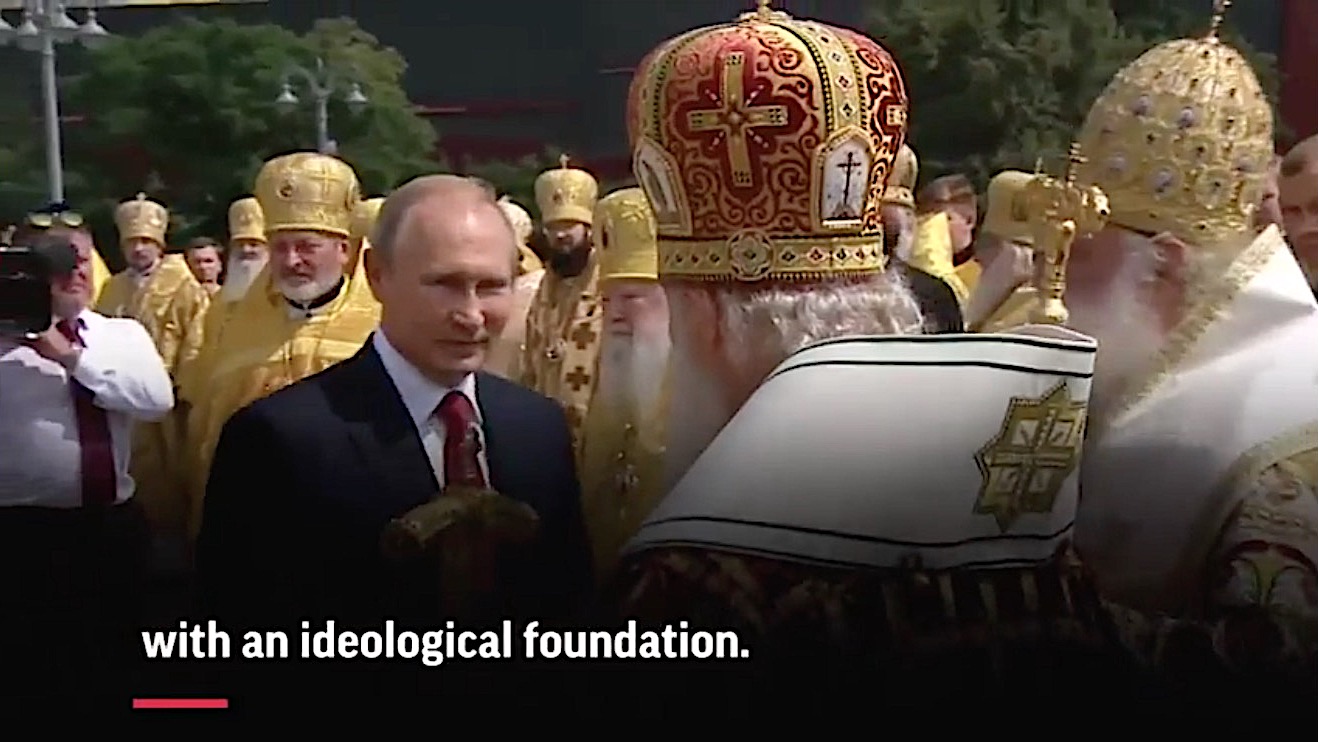Russia is apparently waging a cloak-and-dagger campaign against rival Orthodox churches


A free daily email with the biggest news stories of the day – and the best features from TheWeek.com
You are now subscribed
Your newsletter sign-up was successful
The Russian Orthodox Church is facing a huge loss. Ukraine wants to cleave its Orthodox church from Russia — and the de facto head of the Eastern Orthodox church might grant the request — and the same team of Russian hackers that hit the Democrats in 2016 is apparently aiding the Russian church by trying to steal the private electronic correspondence of some of the Eastern Orthodox church's most senior officials, The Associated Press reports.
Ecumenical Patriarch Bartholomew I in Istanbul, considered first among equals of Eastern Orthodox leaders, might grant Ukraine's church a "Tomos of Autocephaly" — essentially an ecclesial declaration of independence from Russia — as early as next month. The Russian hackers known as Fancy Bear, tied to Russian military intelligence, have been trying to steal correspondence from Patriarch Bartholomew's senior aides, including prelates involved in the Tomos decision, AP says.
If the head of the Russian Orthodox Church, Patriarch Kirill, loses authority over the Ukrainian church, it would be a big blow to Moscow, too, so it makes sense that the Kremlin would be involved, and "the more they know, the better it is for them," explains Vasilios Makrides, an expert on Orthodox Christianity. Kirill's deputy Hilarion Alfeyev has compared granting the Ukrainian church independence to the 1054 schism that spilt the Catholic and Orthodox churches. Patriarch Kirill is flying to Turkey this week to try to sway Bartholomew, 78, from allowing Ukraine's request; Ukrainian President Petro Poroshenko visited Istanbul in April to encourage the split.
The Week
Escape your echo chamber. Get the facts behind the news, plus analysis from multiple perspectives.

Sign up for The Week's Free Newsletters
From our morning news briefing to a weekly Good News Newsletter, get the best of The Week delivered directly to your inbox.
From our morning news briefing to a weekly Good News Newsletter, get the best of The Week delivered directly to your inbox.
Russian Orthodox "leaders are connected to the FSB and their epaulettes stick out from under their habits," Moscow political analyst Dmitry Oreshkin tells AP. "They provide Vladimir Putin's policy with an ideological foundation." And the stakes are really high here, adds Baylor University church-state researcher Daniel Payne. "Kiev is Jerusalem for the Russian Orthodox people," he told AP. "That's where the sacred relics, monasteries, churches are ... it's sacred to the people, and to Russian identity."
A free daily email with the biggest news stories of the day – and the best features from TheWeek.com
Peter has worked as a news and culture writer and editor at The Week since the site's launch in 2008. He covers politics, world affairs, religion and cultural currents. His journalism career began as a copy editor at a financial newswire and has included editorial positions at The New York Times Magazine, Facts on File, and Oregon State University.
-
 Gisèle Pelicot’s ‘extraordinarily courageous’ memoir is a ‘compelling’ read
Gisèle Pelicot’s ‘extraordinarily courageous’ memoir is a ‘compelling’ readIn the Spotlight A Hymn to Life is a ‘riveting’ account of Pelicot’s ordeal and a ‘rousing feminist manifesto’
-
 The EU’s war on fast fashion
The EU’s war on fast fashionIn the Spotlight Bloc launches investigation into Shein over sale of weapons and ‘childlike’ sex dolls, alongside efforts to tax e-commerce giants and combat textile waste
-
 How to Get to Heaven from Belfast: a ‘highly entertaining ride’
How to Get to Heaven from Belfast: a ‘highly entertaining ride’The Week Recommends Mystery-comedy from the creator of Derry Girls should be ‘your new binge-watch’
-
 Nobody seems surprised Wagner's Prigozhin died under suspicious circumstances
Nobody seems surprised Wagner's Prigozhin died under suspicious circumstancesSpeed Read
-
 Western mountain climbers allegedly left Pakistani porter to die on K2
Western mountain climbers allegedly left Pakistani porter to die on K2Speed Read
-
 'Circular saw blades' divide controversial Rio Grande buoys installed by Texas governor
'Circular saw blades' divide controversial Rio Grande buoys installed by Texas governorSpeed Read
-
 Los Angeles city workers stage 1-day walkout over labor conditions
Los Angeles city workers stage 1-day walkout over labor conditionsSpeed Read
-
 Mega Millions jackpot climbs to an estimated $1.55 billion
Mega Millions jackpot climbs to an estimated $1.55 billionSpeed Read
-
 Bangladesh dealing with worst dengue fever outbreak on record
Bangladesh dealing with worst dengue fever outbreak on recordSpeed Read
-
 Glacial outburst flooding in Juneau destroys homes
Glacial outburst flooding in Juneau destroys homesSpeed Read
-
 Scotland seeking 'monster hunters' to search for fabled Loch Ness creature
Scotland seeking 'monster hunters' to search for fabled Loch Ness creatureSpeed Read
